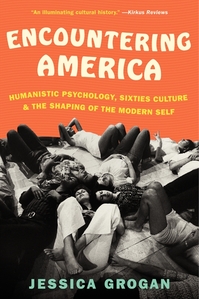Source of book image: http://www.harpercollins.com/harperimages/isbn/large/9/9780061834769.jpg
(p. 23) Abraham Maslow, humanistic psychology’s founding father, rejected the atomistic approaches of psychoanalysis and behaviorism that dominated the first half of the 20th century. He strove to develop a psychology that provided “a fuller, though still scientific, treatment of the individual” and understood the potential for growth as innate. His ideas got their most welcome reception from industrial management, to which Maslow retreated when academia failed to roll out the red carpet. But Grogan eloquently insists that humanistic psychology subtly revolutionized Americans’ conception of the self and the role of therapy, and asserts that current trends in the field, like positive psychology, owe the theory a debt they have been reluctant to pay.
For the full review, see:
MEGAN BUSKEY. “Nonfiction Chronicle.” The New York Times Book Review (Sun., March 31, 2013): 23.
(Note: the online version of the review has the date March 29, 2013.)
The book under review:
Grogan, Jessica. Encountering America: Humanistic Psychology, Sixties Culture, and the Shaping of the Modern Self. New York: Harper Perennial, 2012.


